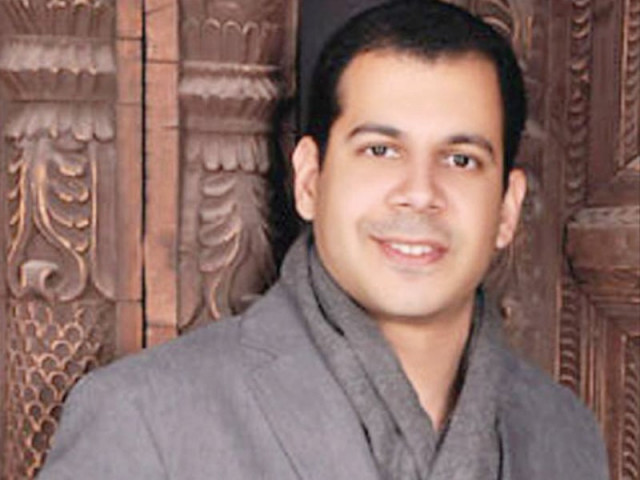Shehryar Fazli’s distant, vanished world
The author of Invitation discusses his inspiration, writing style and second novel.

According to Shehryar Fazli – author of recently published Invitation – there’s no such thing as inspiration. Eventually it all boils down to hard work. Fazli believes a writer should be an unyielding disciplinarian when it comes to routine and is supposed to write a set number of words on the screen per day (Fazli keeps to 300 per weekday, 1000 on Saturday and Sunday).
For this reason, when Fazli emerged from a three year Masters of Fine Arts (MFA) programme in 2008, he had a manuscript in his hand. “When you’re worried about meeting deadlines, it forces you to produce,” he says
The Express Tribune met Fazli at the offices of the International Crisis Group, where the writer occupies the second floor as South Asian Regional Editor and Senior Analyst. Undaunted by the professional world’s brain drain, he is penning his second novel – which he professes will be more modern in theme.”It’s a little fragile at the moment,” says Fazli. “But it’s more contemporary this time and it doesn’t take place in a distant, vanished world,” he adds
Fazli isn’t shy of deconstructing his process down to its bare bones. The writer started Invitation with “a seed”; something raw and incomplete. However, after completing his MFA, nothing of the rawness from the original draft survived except the shred of a narrative voice that accompanied Fazli and later moulded itself in Invitation, “the narrator does survive – he is the one who comes back from West to East (Karachi, 1970).”
On his father’s request, Shahbaz – our Francophile protagonist – returns to Karachi from la vie Parisienne (Parisian life) to negotiate a family dispute over an orchard but gets engulfed in what critics are perennially declaring as ‘Karachi Noir’. Shahbaz falls prey to exotic Malika’s cabaret shows, risky business, free flowing liquor, and politics both internal and external. “The time period is really interesting to me. Pakistan could have gone in a totally different direction,” says Fazli who refers to that era as our lost world; a tragedy of the nation.
The world of Invitation is depicted as a phantasmagoria of experiences both glamorous and disturbing at the same time, with an intense, emotional theme simmering in the background as “an energy under the surface”, he explains.
Surprisingly, there are also times when the book reads like a script. “I’ve been influenced by playwrights like Edward Albee, Harold Pinter, Tom Stoppard. A lot of the story takes place in a scene,” he comments before encouraging writers to read avidly and keep their focus on structure, character and style. Also, Fazli believes a writer is nothing if not a great detective or an even better researcher. Naturally, his own notes took him to Karachi, where he absorbed the city and spoke to the generation of people – mostly family and friends of family – who’d been around back in the 70s. He made an observation that can be linked to Shahbaz: “There’s this look on people’s faces, this…attitude which suggests nostalgia for the lost world and a feeling of complicity – that (yet) they let things go awry, let the country slip away.”
In many ways, the narrator imbibes this idea throughout the novel: he is nostalgic, he remembers and he lets himself go ‘awry’. Fazli’s interest in exploring the sentiment of complicity makes all his characters complicit and involved in something questionable, one way or another. They’re all hooked up to a force, unfathomable, complex and abyssal as the old city of Karachi itself.
Published in The Express Tribune, August 19th, 2011.


1724319076-0/Untitled-design-(5)1724319076-0-208x130.webp)
















COMMENTS
Comments are moderated and generally will be posted if they are on-topic and not abusive.
For more information, please see our Comments FAQ